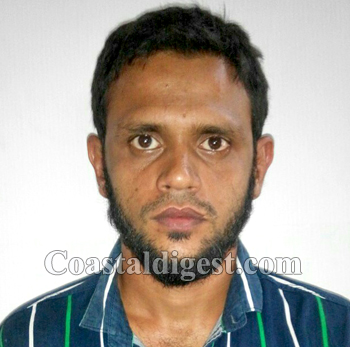Bengaluru, Jun 20: The Karnataka Health Department has issued guidelines on the admission of COVID-19 patients in private hospitals after clinical assessment, mandating that the district surveillance officer (DSO) should be first informed to initiate further procedures, an official said on Friday.
"A health team sent by the DSO should visit the home or hospital where the patient is staying. The team should conduct a rapid assessment of his or her health condition," said Karnataka's Additional Chief Secretary Jawaid Akhtar.
In the rapid health condition assessment, the team should first check the patient's body temperature, followed by SpO2 (oxygen saturation) level and confirm if there are any comorbidities such as hypertension, diabetes, tuberculosis, HIV, cancer, stroke etc.
Depending on the health condition of patients, Akhtar said, two categories have been made.
"Those who have body temperature greater than 37.5 degrees Celsius, SpO2 level below 94 percent, elderly (above 60 years) and suffering from known comorbid conditions should be taken to a dedicated Covid hospital (DCH)," he said.
"All other patients, even if older but not suffering from co-morbidities, those below 60 and suffering from co-morbidities and asymptomatic cases should be taken to a dedicated Covid health centre (DCHC) or a private hospital as opted by the patient," he added.
Private hospitals have been asked to pitch in due to the rising number of cases in Karnataka. Currently, there are 2943 active cases in the state after 337 cases were reported on Friday.
"The patients are assessed clinically and evaluated at DCHCs or private hospitals with appropriate diagnostic tests. After evaluation, if the patients are asymptomatic, they are shifted to a COVID Care Centre (CCC) for further management," said Akhtar.
CCCs are expected to be equipped with ventilated rooms, pulse oximeters, handheld thermal scanners and blood pressure apparatus.
A nurse has to be present round the clock for every 50 patients and should visit each patient twice a day for assessment whereas the medical officer has to visit the CCC once a day. He should also be available on call in case of an emergency.
Staff serving food and others should wear personal protective equipment and an N-95 mask. Explaining the procedures at DCHCs, Akhtar said general examinations for medical conditions like body temperature, BP, pulse, oxygen saturation and urine output should be in place.
Investigations such as complete blood count, fasting blood sugar, random blood sugar, liver function tests, renal function tests, ECG and chest X-ray facilities should be available.
"DCHCs should ensure that above examinations are over in an orderly timeline of 24 hours and depending on the examination, the patient is continued to be lodged at the DCHC or sent to DCH or CCC," said the senior officer.
Likewise, the discharge policy should be done as per the protocols issued by the Health Department from time to time.
The Karnataka government is yet to fix an upper limit on the cost of treating COVID-19 patients in private hospitals. While reports indicated that this could be capped at Rs 5200 per day, health officials are yet to specify this is the case. Private hospitals in the state have asked the government to take a collaborative approach in deciding the fixed cap on treatment cost.
 Kiran Shetty, a notorious criminal, attacked Mustafa with a lethal weapon in the morning, sources said.
Kiran Shetty, a notorious criminal, attacked Mustafa with a lethal weapon in the morning, sources said.



Comments
It is pre-planned murder,,,tmrw musthafa is to be released from jail
Those who r congratulating for the murder, please go and do it by yourself and feel proud. No... you cant do and u will never do it bcoz it will spoil ur future and your family.
Yererna ammana mage jaild kuriyinda kuriyad nank daane atthe.
Be a human first
Some ppl r happy for the above news..Now kiran will meet d same fate by someone else.
Its easy to type and comment congratulating kiran, but saddna tho kiran ko hai.
Kiran wait for your turn...
This is expected.........Accused considered as culprit.......
In reality culprit ruling the nation...........
falsehood bound to persish.truth prevails.....
For a Mumin if die in the cause of Truth or win both same..... both considered as victory
Indeed great news ... tax payer money saved ,billawa youth prashanth pujari atmakke shanthi sikthu ... good job kiran ... terrorists and criminals must meet the same fate ...
Inna Lillahi wa inna ilaihi rajioon
God is great, he dispensed justice inside the jail.
60% Cops are to be considered as terrorist.
Strange, encounter in jail.......Muslims have to suffer everywhere in the name of terrorism.....
Strange, How the criminals get lethal weapons in the Jail????
why the jail is providing them entertainment channel, So, this is the reason people do not hesitate to commit crime. Because they are getting everything in the Jail and leading a lavish lives over there.
Add new comment